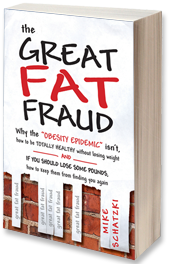Recent reports in The New York Times and elsewhere have highlighted a growing trend among large and mid-size corporations to penalize healthcare plan participants who are deemed to be “obese.”
Companies that focus on obesity are looking in the wrong place to cut back on spiraling health care claims costs. The idea that someone’s health status automatically deteriorates as their weight increases is a myth that has been perpetrated by a lot of very poorly designed research studies. Almost all of those studies looked only at death rates and weight, and completely ignored fitness. When studies have taken fitness into account, a very different picture emerges.
When researchers split their study groups into those who are fit and those who are not fit, what they find is that people who are fit, regardless of their weight, have one half the death rate of people who are thin and sedentary. It is only for people who are sedentary that death rates climb as weight increases.
It would be massively unfair to penalize someone who is fit but heavy when that person is likely to have half the healthcare claims experience of someone who is thin but sedentary. Corporations that impose or are planning to impose obesity penalties must have a fitness exception. People who are heavy must be given an opportunity to prove that they are fit with a simple treadmill test, and those who are fit must not be penalized.
In fact, if corporations really want to focus on what is driving health care costs, they should be rewarding everyone who is fit, regardless of their weight.






